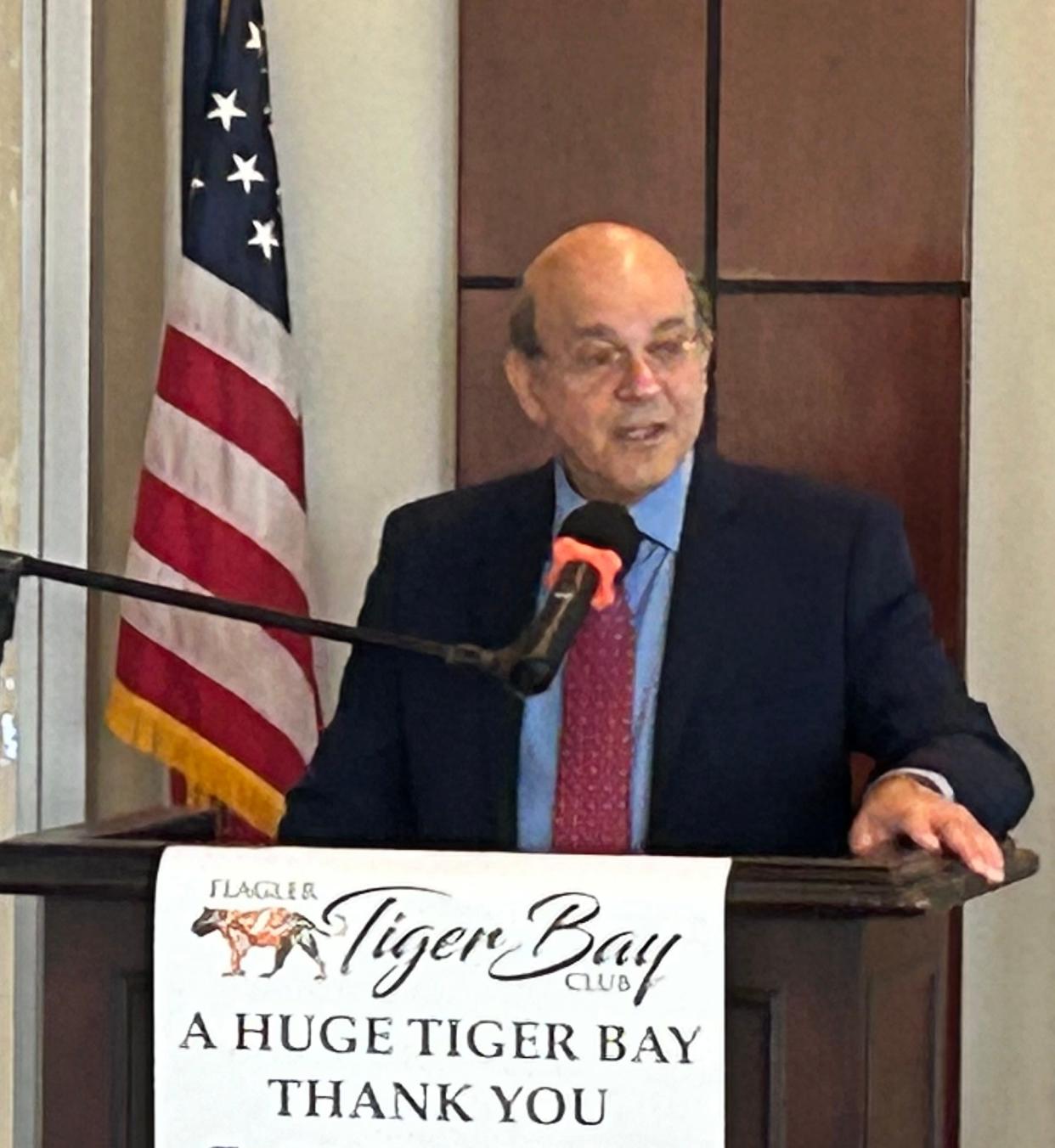Stay off the dunes: Proposed Flagler County order could result in $500 fine, jail time

Walking on the dunes in Flagler County will be a second-degree misdemeanor punishable by up to 60 days in jail and up to a $500 fine, if the county approves an emergency order Monday.
The order to “essentially criminalize” disturbing or damaging the dunes is needed because people are walking over the barriers which are designed to protect the beach, according to Flagler County Attorney Al Hadeed.
“We are really serious about staying off the dunes,” Hadeed said.
The proposed increase in penalties was one of the topics Hadeed discussed as the guest speaker Wednesday at the Flagler Tiger Bay Club luncheon at the Hammock Dunes Club.
Hadeed said it probably takes about six months for vegetation to strengthen a dune.
“People are walking on the dunes. I don’t think they understand how destructive their activities are,” Hadeed said.
The County Commission is scheduled to vote on the emergency order at its meeting on Monday. It is linked to a county continued state of emergency on beaches due to the shoreline's continued pummeling by hurricanes, Nor’easters, king tides and other beach erosion events.
Walking on the dunes in Flagler Beach is already a second-degree misdemeanor punishable by up to 60 days in jail and a fine of $500, according to Police Chief Matt Doughney.
Vulnerable Florida beaches
The county’s beaches were the topic of Hadeed’s talk. He said the county’s beaches are very vulnerable and that even without a hurricane or storm, the beaches can sustain damage. All it takes is a tidal event.
He asked everyone at the luncheon, which included local politicians, to keep in mind that the beach must be safeguarded for the community’s well-being. He said the safety and “dreams and aspirations” of the community were in their hands.
Hadeed praised the Army Corps of Engineers and its project to renourish Flagler County beaches with sand and its commitment to return to renourish the beaches if needed within the next 50 years.
He said that after Duval County was hit by hurricanes awhile back, it tried to protect the beach by building structures like seawalls.
“They armored the beach” Hadeed said, pointing out that those tactics failed.
Jacksonville Beach then took a different approach with sand renourishment, which was successful. But the beaches must be renourished, he said.
"And guess what? That sand doesn’t really go away. It just goes offshore and sits immediately offshore and acts as a deterrent or a factor in slowing down the impacts of storm events,” Hadeed said.
He said much of that sand will come back up on the beach “in the normal cycle of events.”
'Grit and determination'
Hadeed said sand renourishment is expensive and Flagler County doesn’t have a lot of money.
“So when you don’t have any money, what can you throw into the equation that makes it work? Grit and determination," he said. "You’re going to get this done. You’re going to surmount whatever is necessary to get it done.”
Hadeed said “that has been the mantra for all the local governments along the beach.”
He said Flagler County had not had any destructive hurricane in decades until Matthew in 2016, which collapsed portions of A1A in Flagler Beach. Tropical Storm Nicole in 2022 also damaged A1A.
“When Matthew came there was a rude awakening,” Hadeed said.
Hadeed said then Sen. Bill Nelson helped in getting the money to rebuild after Matthew.
Matthew also caused a dune breach around Washington Oaks which flooded Marineland Acres and damaged other homes in the area.
The county then set about rebuilding the beach.
"We did not have the money, didn’t have the ability to go out and hire a contractor. We did it ourselves," Hadeed said.
He praised the county’s Engineering Department and Road and Bridge Department and other county workers who worked on the project.
“We did the beach ourselves on time, under budget — over 11 miles,” Hadeed said.
He said to his knowledge no county has done a major beach restoration project itself except for Flagler.
Hadeed: “All we had was grit and determination."
This article originally appeared on The Daytona Beach News-Journal: Flagler may make walking on dunes punishable by up to 60 days in jail

